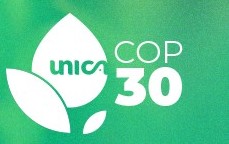
UNICA at COP30 – “Maritime fuels and decarbonization”
COP30 – Blue Zone – Brazilian Sustainable Transportation Pavilion (PV-B26)Panelists will reflect on opportunities and challenges of expanding sustainable fuel use in the maritime sector, focusing on how biofuels can complement other low-carbon technologies to help countries meet IMO targets and advance a sustainable global shipping economy.
